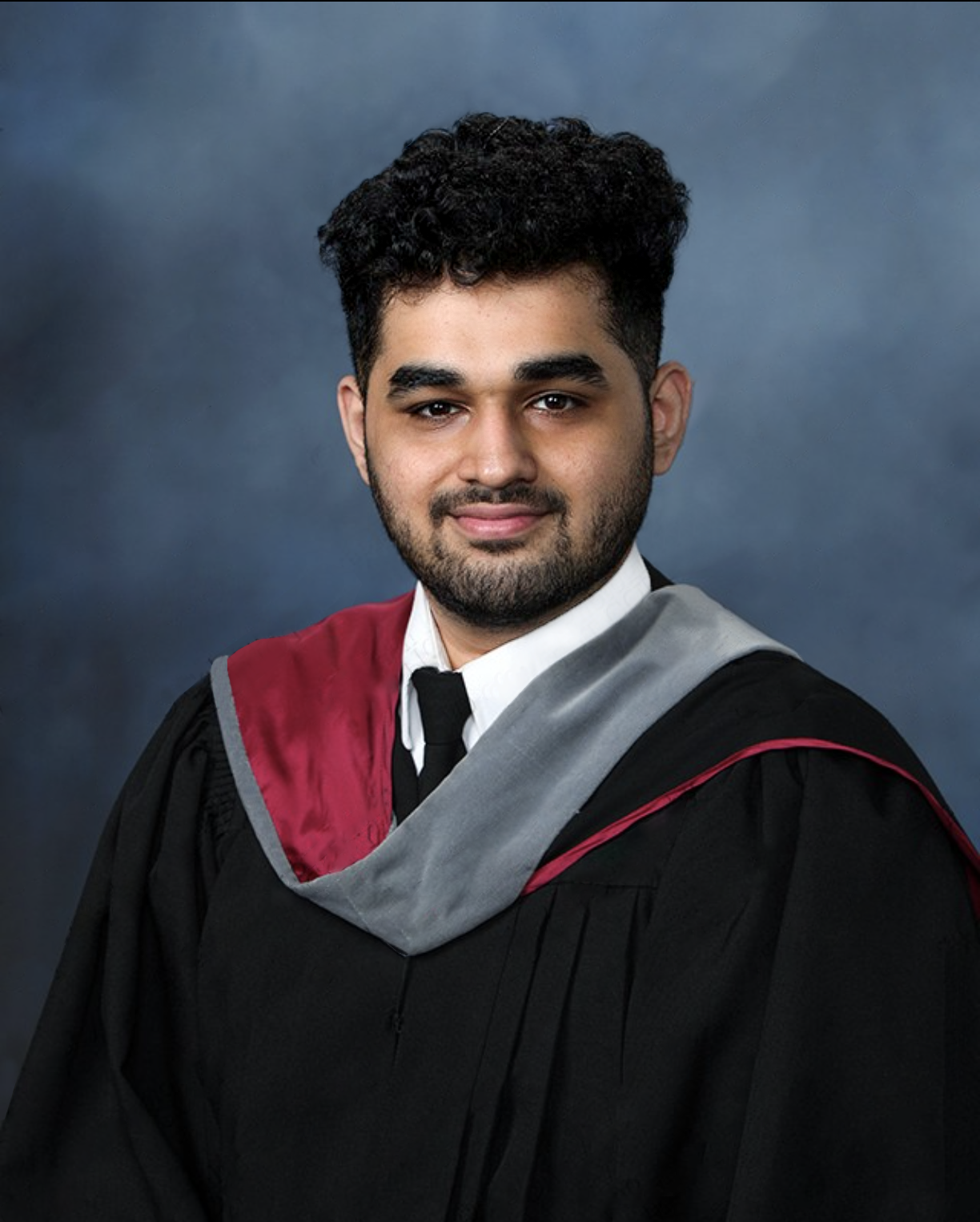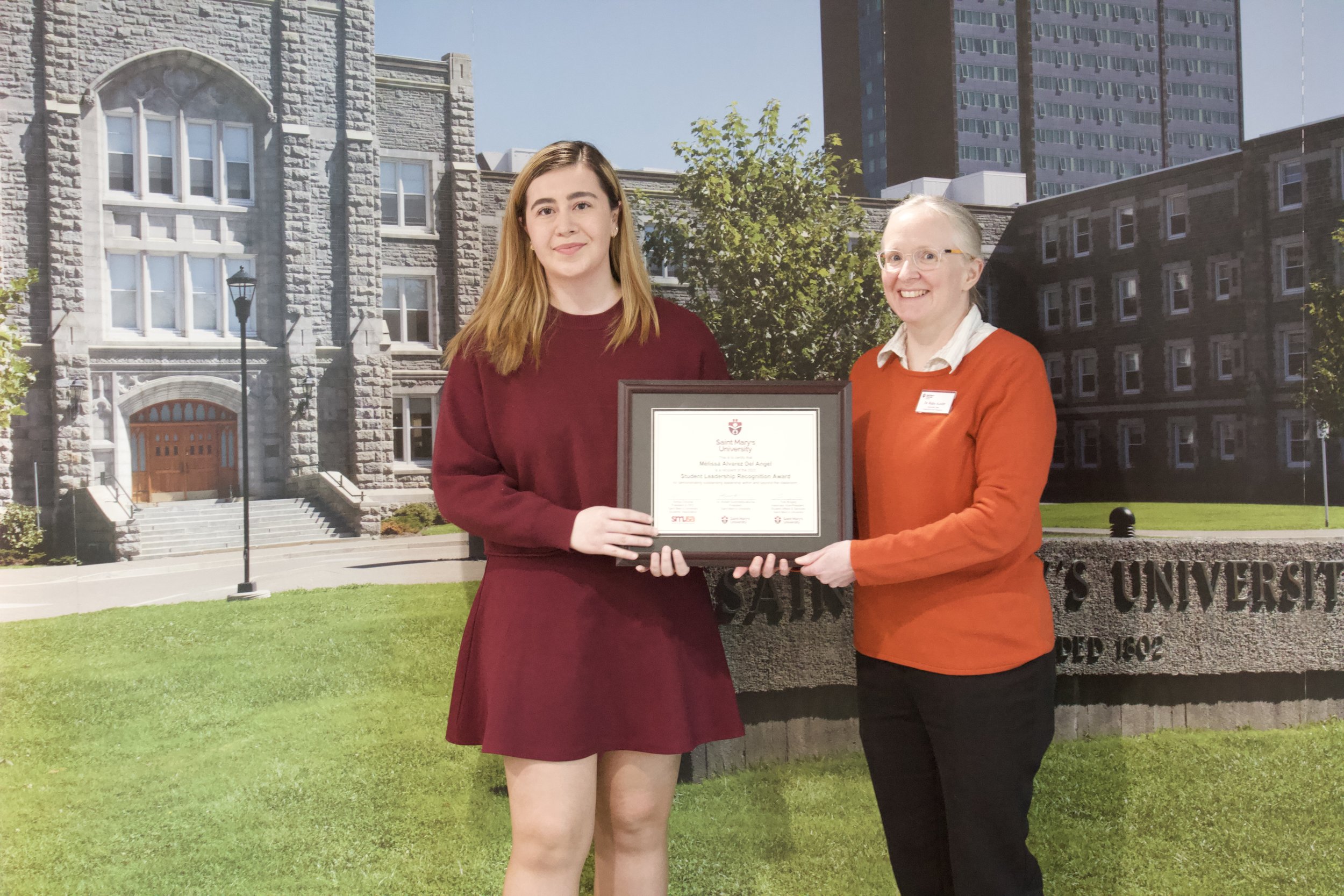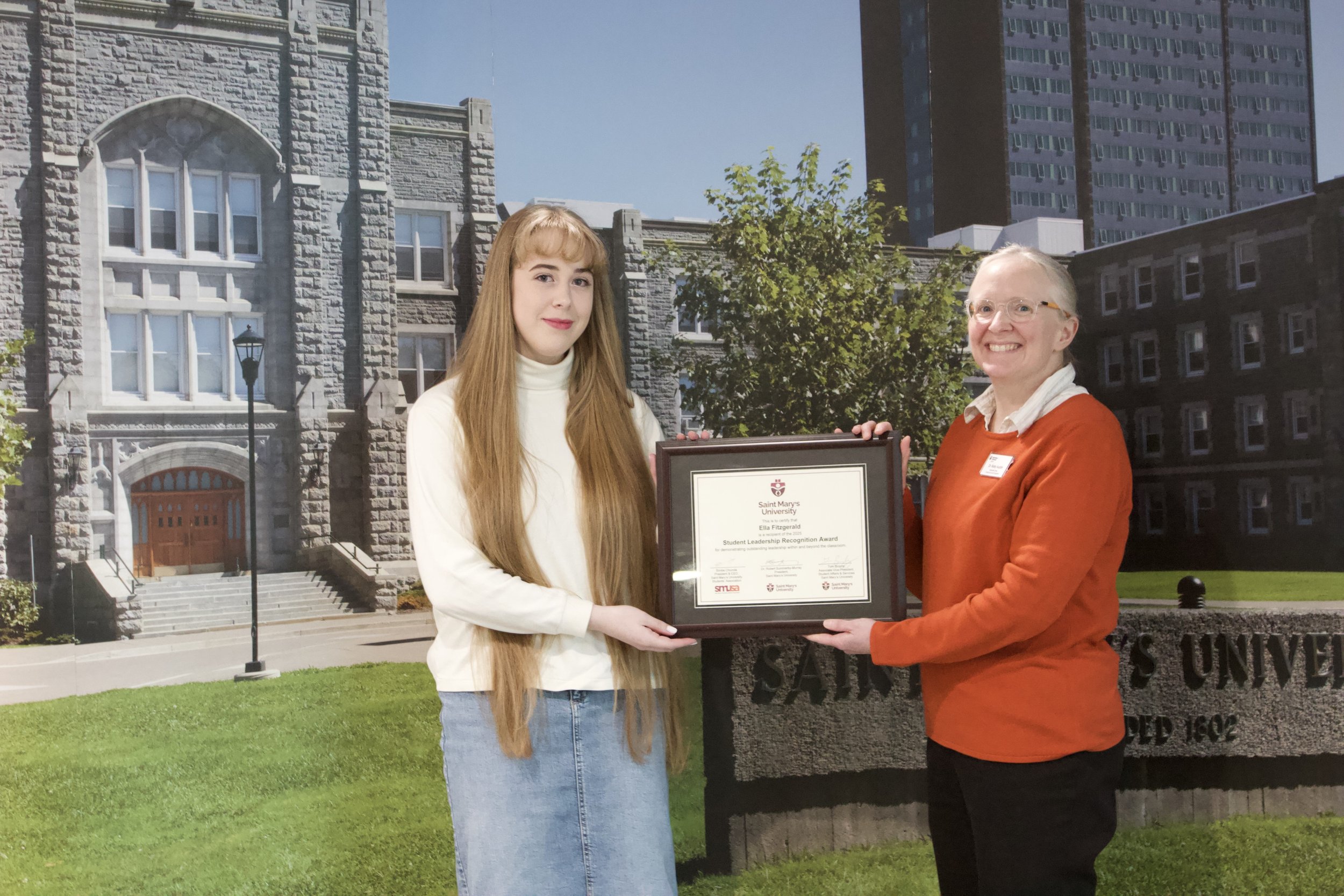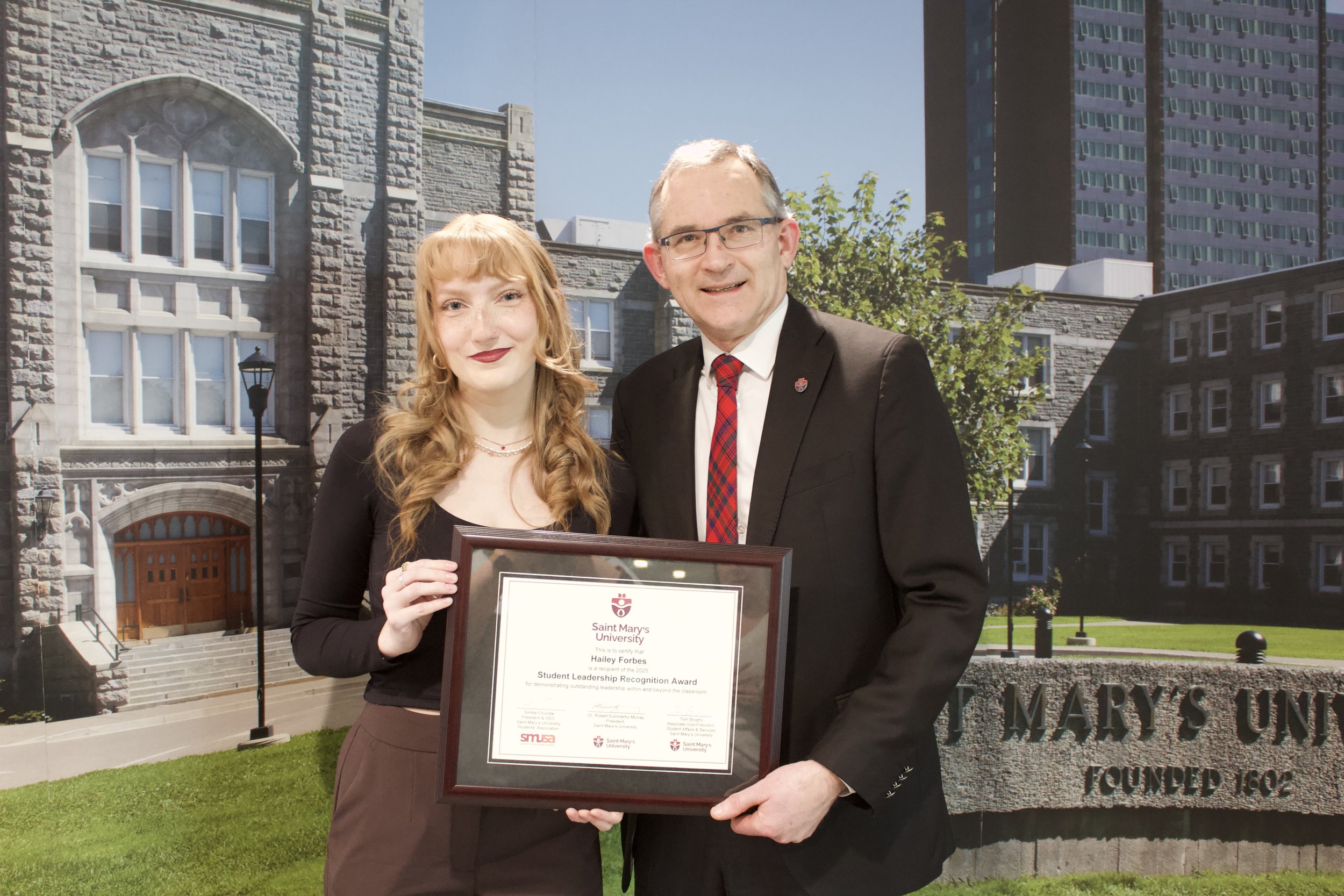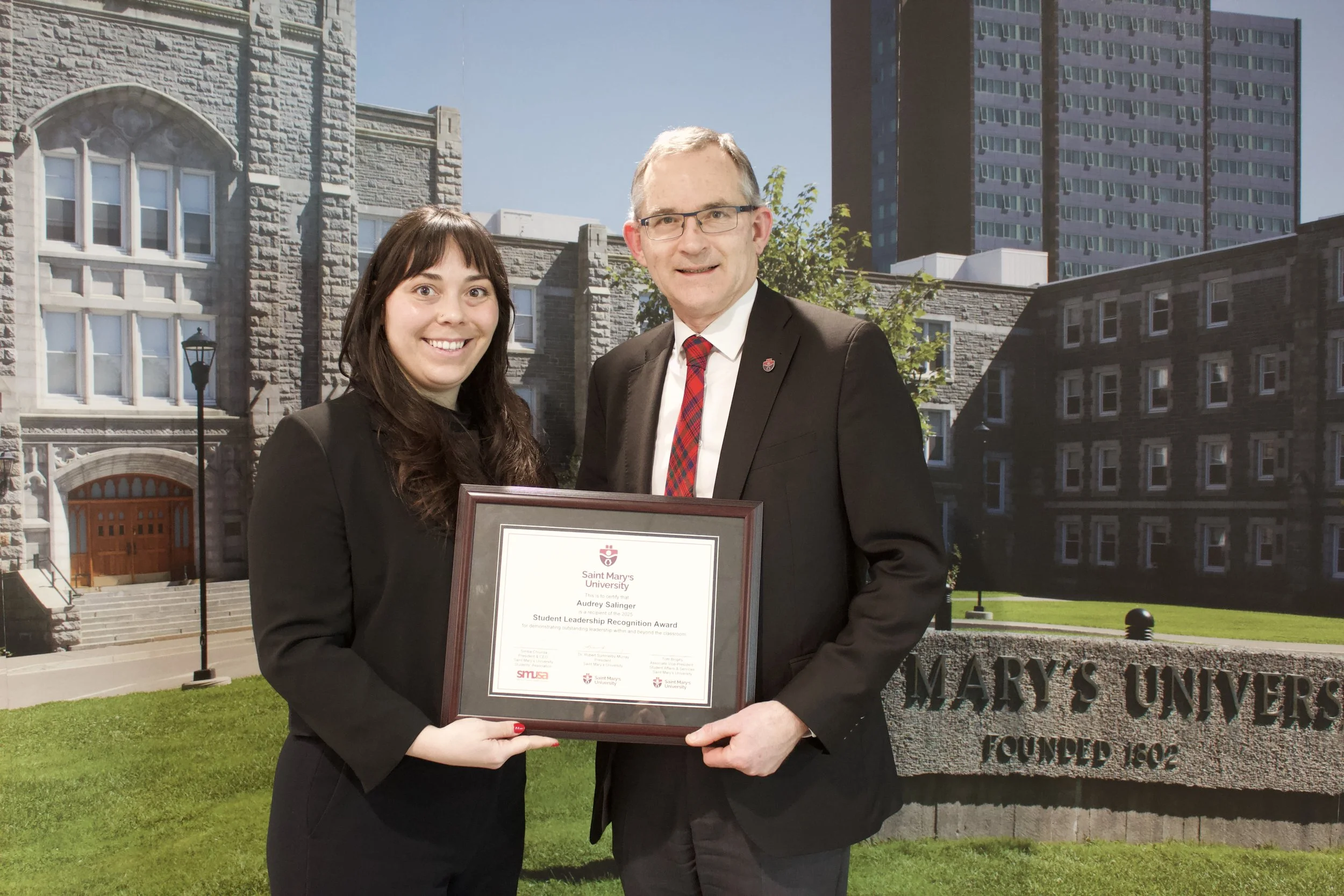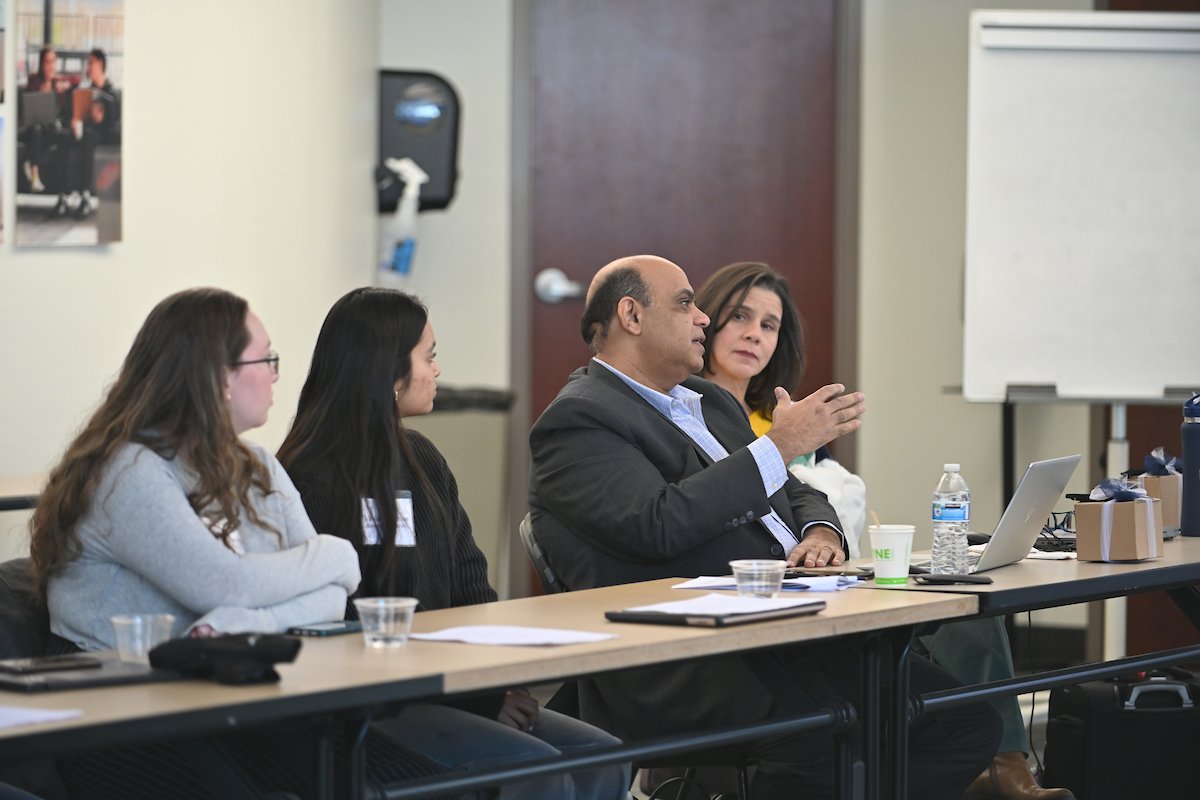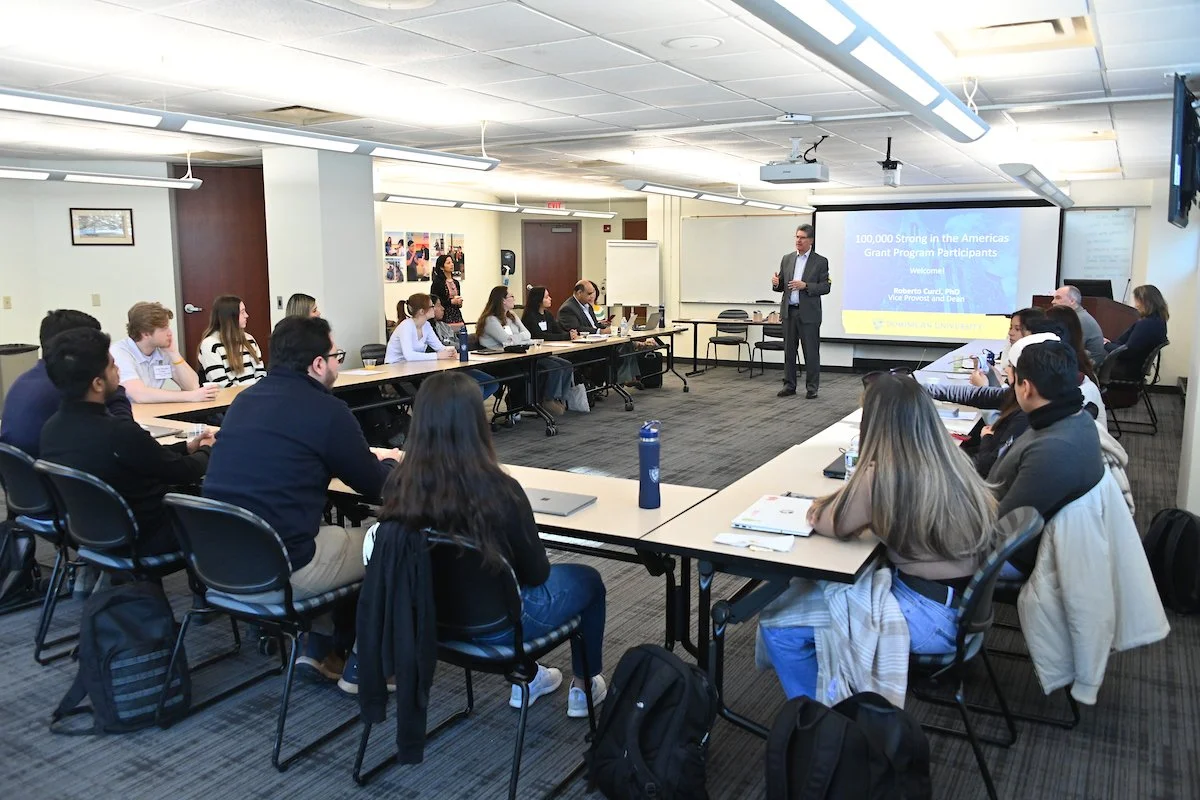Convocation is a special time to celebrate the hard-working graduates of Saint Mary’s University and to reflect on their achievements over their years of study. This month, six students will address their convocation classes as Valedictorian—an honour which reflects their unique journeys as students and leaders at Saint Mary’s. As Valedictorians, they are recipients of the John and Heather Fitzpatrick Valedictorian Awards.
Students from the graduating class of Winter 2025 will be celebrated on May 27, while Spring graduates will cross the stage from May 28 to 30. Visit the convocation website for details on the ceremony and links to the live streams.
Sheheryar Khan
After relocating from Dubai three years ago, Sheheryar Khan quickly found purpose at the intersection of science, sustainability and innovation. Graduating with a Bachelor of Science and a Diploma in Engineering, he leads Alaagi, an award-winning startup tackling plastic pollution with seaweed-based bioplastics. From winning the Hult Prize National Championship to supporting fellow changemakers through the Arthur L. Irving Entrepreneurship Centre, Sheheryar is honoured to represent such a driven and ambitious graduating class and looks forward to contributing to a cleaner, greener future.
Maxinne Nana Ama Benyiwah Baddoo
Originally from Ghana, Maxinne Baddoo was drawn to Saint Mary’s for its close-knit academic community and hands-on learning environment. She graduates with a Master of Technology Entrepreneurship and Innovation. With a background in technology and banking, she brings global experience to everything she does. She has supported cross-border projects and mentored young leaders through organizations like YouthUp Global. Passionate about purpose-driven impact, Maxinne blends technical insight with a heart for service and looks ahead to shaping change through innovation, faith and empowerment.
Maria Mannette
Born and raised in Halifax, Maria Mannette graduates magna cum laude from the Sobey School of Business with a double major in Computing and Information Systems and Management. A consistent Dean’s List student, she balances multiple jobs with demanding coursework while taking on leadership roles that enrich campus life. As the founder of the Women in Business Society, a BComm Student Ambassador and a mentor in multiple academic roles, Maria brings both heart and hustle to everything she does. With plans to pursue law school and a career in human rights, she is passionate about using her voice to advocate for meaningful, lasting change.
Muhammad Usman
Born in Dubai and proudly rooted in Pakistani heritage, Muhammad Usman brings his entrepreneurial spirit to Canada and the Sobey School of Business. Graduating magna cum laude with multiple academic honours, he immersed himself in opportunities such as a co-op with the Halifax Wanderers FC and diplomatic dialogue at the Model UN in New York. Now preparing to launch a cultural fashion startup that celebrates diversity and innovation, Muhammad reflects the bold, borderless ambition of Saint Mary’s—and the power of family, community and purpose-driven leadership.
Lydia Hui-Qi Lee
Originally from Toronto, Lydia Hui-Qi Lee graduates summa cum laude with a double major in Economics and Marketing. From winning global case competitions to presenting research on food insecurity to Canada’s top economists, Lydia blends academic excellence with purpose-driven leadership. With plans to pursue a Juris Doctor and Master of Business Administration, she aims to build a career that combines corporate law with her ongoing passion for social entrepreneurship. She carries with her a deep appreciation for the mentors and communities that helped shape her journey.
Madeline Grace Dalzell
Coming from Welland, Ontario, Madeline Dalzell graduates summa cum laude with a Bachelor of Environmental Studies. Over the last several years, she has become a key part of the campus sustainability movement, serving as an executive member of the Environmental Society and leading initiatives to bring environmental awareness and integrate sustainability into daily student life. Her Honours thesis on old-growth forest conservation reflects her deep commitment to protecting natural ecosystems—a passion she will continue to explore in a master’s program in Natural Resource Management at Dalhousie University this fall.





